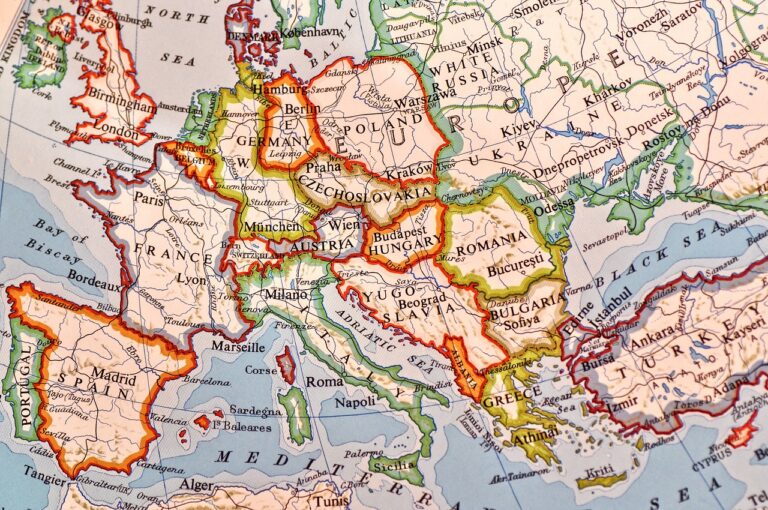The Embassy of the Oriental Republic of Uruguay marked his country’s Independence Day with a grand and festive reception. Held on August 27 at the Leonardo Royal Hotel in The Hague, the event drew over 200 distinguished guests from various sectors of Dutch society.
Ambassadors, chiefs of international missions, diplomats, academics, business leaders, and representatives from the Dutch Ministry of Foreign Affairs, along with members of the Uruguayan community, all responded to H.E. Ambassador Dr. Álvaro González Otero’s invitation to celebrate ‘Día de la Independencia’—Uruguay’s National Day, commemorating its independence from Brazil in 1825.

After nearly 200 years of conflict and civil unrest under Spanish and then Brazilian rule, Uruguay has emerged as a country renowned for its welcoming people, stunning landscapes, first-class meat production, and high-quality wine. In recent decades, Uruguayans have enjoyed a stable democracy, a steady improvement in living conditions, and overall well-being.
In a packed room with an animated audience, Ambassador González Otero took the microphone to thank all the attendees for their sincere affection for his people and country. He then proudly expressed:
“Two years have quickly passed since I arrived in this lovely kingdom. Since then, we have started to shift the focus of the Embassy, placing more emphasis on our bilateral relations. The Netherlands and Uruguay have more in common than people might imagine. We share international principles, landscapes, agricultural production, developed services, qualified exports, and a progressive lifestyle.
We also share strong commitments to the well-being of our citizens and visitors, the protection of human rights, environmental sustainability, progressive social policies, and significant efforts towards renewable energy and climate action. Both countries also emphasize education, democratic governance, and active participation in international organizations promoting peace and development. So, we will keep working to boost our bilateral relations.”


Ambassador González Otero then listed some of the most relevant initiatives undertaken by the Embassy over the last few months:
– Uruguayan participation in the World Hydrogen Summit 2024: Led by the Minister of Industry, Energy, and Mining, Ms. Elisa Facio, with over 50 representatives from various sectors of the public and private sectors.
– Active participation in the “26th World Energy Congress.”
– Cooperation Project with Delft Institute for Water Education: Since 2011, Uruguayan professionals specializing in water resources have participated in the Delft Institute program for advanced training. Initially, the program began with 40 scholarships, resulting in 37 professionals successfully completing their studies. This early success led to the program’s relocation and implementation at the Technological University of Uruguay, now featuring regional participation. The program has since had two new editions in 2022 and 2024, expanding to include 17 professionals from Argentina, Bolivia, Brazil, Colombia, Ecuador, Honduras, Mexico, Panama, and Peru. This development has transformed Uruguay into a regional hub in the field of water resource education.
– Uruguay’s status as one of the 32 signing states of the Ljubljana – The Hague Convention in February 2024.
– Positioning Uruguay as a potential living and working destination for Dutch farmers.
– Interactions with RVO and Port of Rotterdam related to port cooperation.
– Exploring and initiating new cooperation projects with Westland Municipality and Wageningen University.
– Meetings with private sector actors related to agribusiness.
– Preparation for the Capitan Miranda’s visit to Amsterdam: Uruguay’s school tall ship has already confirmed its participation in Sail Amsterdam 2025.
– Multilateral achievements: The Embassy has made progress in multilateral areas, including ongoing contributions and work with international organizations based in The Hague: the ICJ, ICC, OPCW, HCCH, and the Permanent Court of Arbitration. Additionally, a closer relationship with The Hague Academy of International Law has been pursued. Significant advances have also been made through the coordinated work of the GRULAC Group in relation to various international organizations.

Following his remarks, Ambassador González Otero invited the audience to watch a short video about Uruguay, which made a great impression on those present. He expressed, “Uruguay is an exceptional country that has developed a dynamic and robust culture, shaped by a fascinating blend of gaucho traditions, European influences, and the unique Rioplatense spirit. Tango, folklore, candombe, and milonga are examples of its rich artistic musical expression. Uruguayan gastronomy, featuring high-quality meat, wine, and dairy products, especially the beloved ‘dulce de leche,’ delights palates and consistently wins prestigious awards worldwide.”
“The work we have done does not mean we are satisfied; we want to continue advancing in a deeper process. The bilateral relationship is already strong, but the potential to strengthen bonds in several key areas is even greater.”

The event was conceived to showcase the rich and diverse culture of Uruguay, a nation with a population of approximately 3,495,527 as of 2022.
The national anthems of Uruguay and the Netherlands were performed by the Uruguayan opera singer Sara de los Campos. After the ambassador’s speech, the Embassy paid tribute to two influential musicians: José “El Sabalero” Carbajal and Jaime Roos, who both lived in the Netherlands. Jaime Roos settled in Amsterdam in 1978, where he played bass in several salsa, rock, and jazz groups. He had a son and remained in the Netherlands until 1984 when he returned to Uruguay.
Carbajal spent his days in the Netherlands with his wife, Anke van Haastrecht, and their two children. Anke was invited to share some special stories from their life together.


The enthusiastic audience enjoyed an authentic performance by talented Uruguayan drummers Luis Gradin, Marcelo Terra, and Nicolás Sánchez. The celebration continued with Uruguayan wine, classic savory empanadas, and dulce de leche, which delighted the crowded room and completed the great celebration.
Ambassador González Otero concluded the event by thanking his Embassy team: Counselor Pablo Bayarres, Chancellor Gustavo Morales, his assistant Juan Diego, and Martha Hernández and Sofía Anastasiou. He then led a warm toast for the people of the Netherlands, Uruguay, and the necessary and desired peace in the world.


























